Sufficient trust has been given to Setién, and Guoan changes coach to rebuild the team's "spirit and energy."
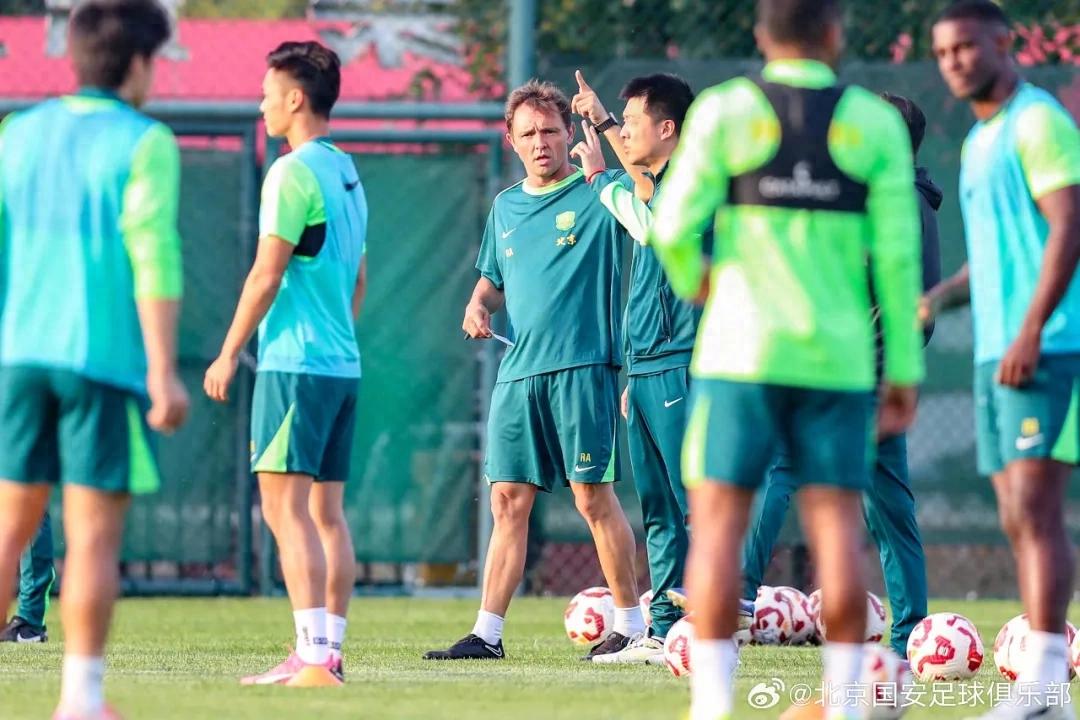
Special contribution / Song Ci During the recent holiday, the major headline in the Chinese Super League was Guoan’s long-awaited coaching change. On October 5th night, 75 hours after losing 0-3 away to Australia’s Macarthur FC, Guoan officially announced the departure of their former head coach Setién. On October 7th, the club confirmed assistant coach Ramiro Amare as the acting head coach.

Since 2015, Guoan has successively changed several head coaches or interim coaches, including foreign coaches such as Manzano, Zaccheroni, Jose, Schmidt, Jenezio, Stanley, Bilic, and Suarez. Including temporary domestic coaches, Setién was the eleventh head coach Guoan has had in the past decade.
Perhaps because Beijing fans have witnessed many big moments and experienced several well-known European coaches, Setién’s arrival initially did not attract much attention from local fans or media. Some even cast critical eyes on Setién’s infamous 2-8 defeat during his time at Barcelona.
Because of this, Setién’s tenure was accompanied by controversy and doubt from the start, especially regarding his three-center-back formation. Even after the team achieved a 16-match unbeaten streak and won the half-season championship, many still believed this tactic was unsuitable for the team.

After a home loss to Shenhua broke the unbeaten streak, Setién’s position was never secure again. Especially following a 0-6 defeat to Taishan, calls for his dismissal were widespread. However, on that occasion, Guoan chose to stand by him, with full trust and patience from both the club’s internal management and top executives.
Insiders revealed that club chairman Zhou Jinhui, influential figure Xu Lei, and general manager Li Ming held multiple talks with Setién in various settings. Zhou even met him formally in the office and privately at dinners, speaking both as a boss and a friend, hoping for changes. Yet, Setién remained quite stubborn.
Before the match against Shanghai Port, some speculated that if Guoan lost at home, Setién would almost certainly be dismissed. But club leaders immediately denied this internally. It was thought to be a gesture to maintain morale before a key game, but unexpectedly, even after losing at home and being out of the league title race, the club still decided to keep Setién in charge. This shows the extraordinary trust Guoan placed in the Spaniard.


After being eliminated from the league title race, the club clearly stated the priority was to perform well in the upcoming AFC Champions League group stage and the FA Cup, especially the AFC matches, which are important for the reputation of Chinese teams. Historically, Guoan has performed well in foreign matches, whether friendlies or AFC games. Therefore, before departure, the club gave Setién very clear instructions: to play well in all AFC group matches and to field the strongest lineup against Macarthur.
Before traveling, internal club information indicated that except for Gu Jia, other key players would go to the away match. However, the traveling squad left main players like Housen, Wang Gang, and Wu Shaocong in Beijing. When the starting lineup was announced, nearly everyone was shocked to see key players like Fabio, Gu Jia, Serginho, Cao Yongjing, and Lin Liangming on the bench. Nobody understood why Setién "rested" so many starters with over half a month before the next game.
"Why arrange it like this? Could it be Setién playing a 'Tian Ji horse race' strategy? But even then, the substitution timing was too late." Inside Guoan, there was confusion about Setién’s decisions. More importantly, when trailing 0-1 in the first half, Setién did not make timely substitutions, and by the time he wanted to bring on players like Fabio, the score had become 0-2.
Why Setién acted this way may remain a mystery forever. But for Guoan, the answer no longer matters. The 0-3 scoreline was the last straw, and everyone knew Setién would not stay.
After returning from Australia to Beijing, the club had a lengthy discussion with Setién. Ultimately, Setién resigned voluntarily, and the board accepted his resignation.
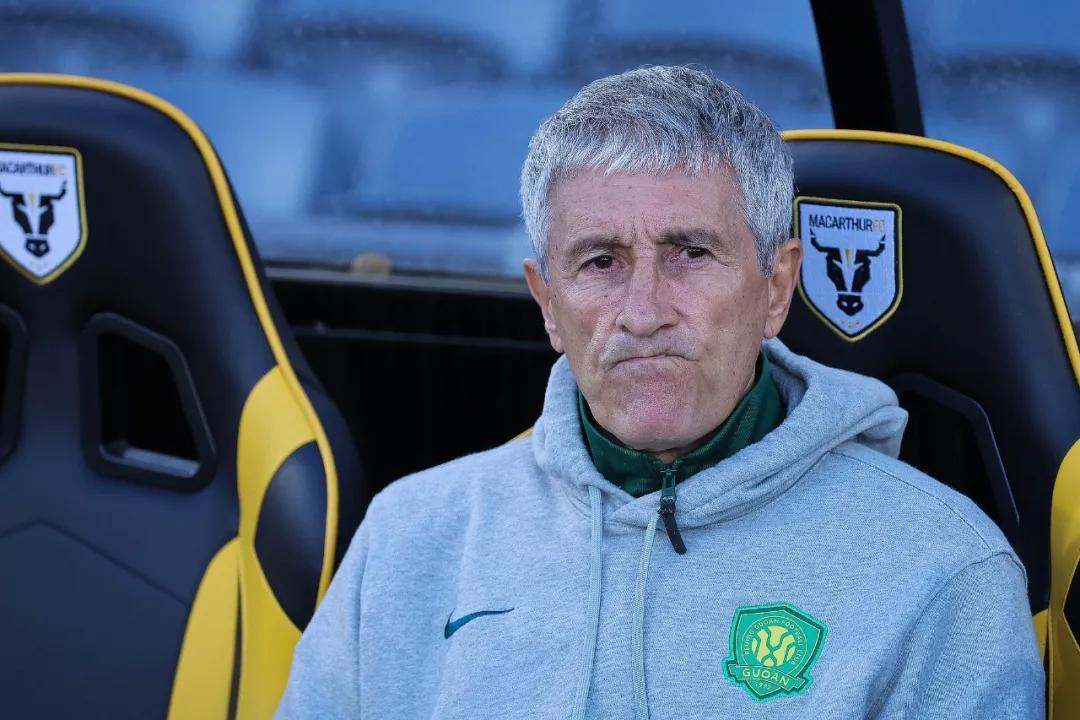

Poor results were certainly a major reason for Setién’s departure, but not the only factor.
Entering the hot summer months, Guoan’s fighting spirit and running metrics clearly declined compared to the first half of the season. In the first 16 rounds, Guoan ranked in the top four for average running distance and high-intensity runs. Considering they usually dominated possession, maintaining such a high pace made their unbeaten first half unsurprising.
However, starting the second half, Guoan’s running data dropped significantly, falling outside the top ten in recent matches, even lagging behind some mid-table teams. Match data reflects training quality, indicating issues with Guoan’s training regime.
An insider shared that in the last one to two months, Setién’s training sessions were long, often exceeding two hours and sometimes reaching three. However, the intensity was not high—most time was spent explaining tactics and correcting players’ mistakes.
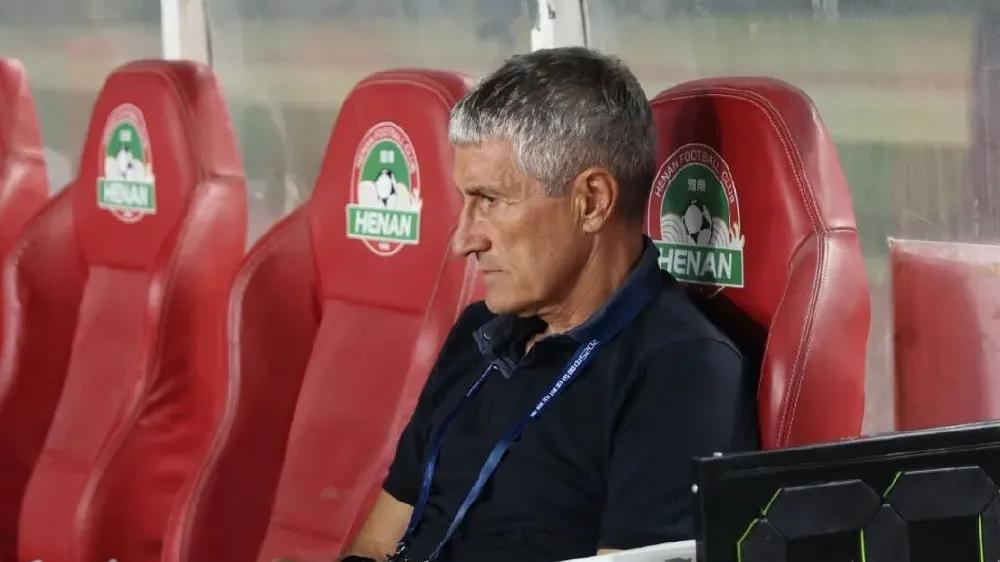
Setién’s approach aimed for players to better understand his demands, but neglecting training intensity and lacking confrontation meant poor match performance. More crucially, the team’s traditional fighting spirit was missing, which fans disliked most. Particularly when trailing, players appeared anxious, and Setién mostly remained silent and withdrawn without making adjustments.
Another point: for the past two months, Setién almost always praised opponents’ strength in pre- and post-match conferences. While this was ignored in one or two games, over time even many players lost confidence, feeling every team was as strong as Guoan, leaving them uncertain about any opponent. Even at Workers' Stadium, players no longer showed the spirited energy they once had, which deeply worried the club. Hence, the coaching change was not only about poor results but also about restoring the team’s spirit and vigor.
Inside the club, the immediate goal is to transform the team’s mentality, demanding they fight until the last minute in both the league and AFC matches, with even greater emphasis on the FA Cup final, requiring full effort and relentless determination.
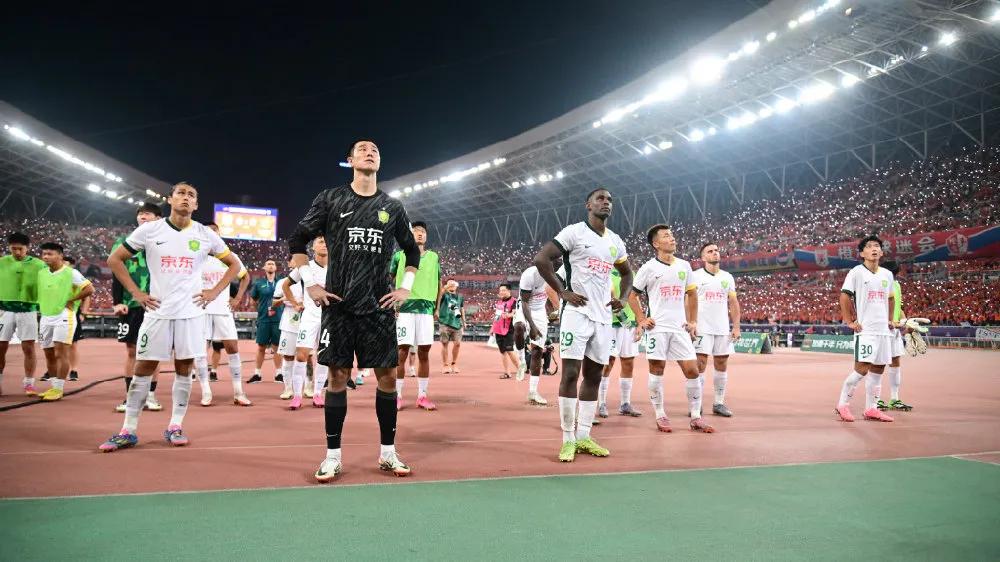

Two days after Setién’s resignation, Guoan announced assistant coach Ramiro as interim head coach. Choosing a foreign assistant to lead the team is a first for Guoan and quite rare in the entire Chinese Super League.
Ramiro’s background is well known; most of his achievements were in beach soccer. Observers noticed that after Setién took charge, Ramiro often explained tactics during training. In fact, when Setién was first announced, Ramiro appeared alongside him and Li Ming. Moreover, during Zhou Jinhui’s talks with Setién, Ramiro frequently joined and was responsible for explaining the head coach’s tactical ideas to the boss.
Ramiro plays a crucial role in the team. He is very familiar with the team’s tactical style and knows which positions suit each player best. Therefore, by choosing Ramiro, the club aims to maintain tactical continuity without major changes, while allowing adjustments based on different opponents.
The club did consider appointing a domestic coach for the replacement, but no suitable candidates were found externally. Internally, only Sui Dongliang and Tao Wei were available, but they also have important roles in managing players’ psychology. Thus, the current coaching division has Ramiro focusing on tactics and training, while Chinese coaches work more on restoring players’ confidence.
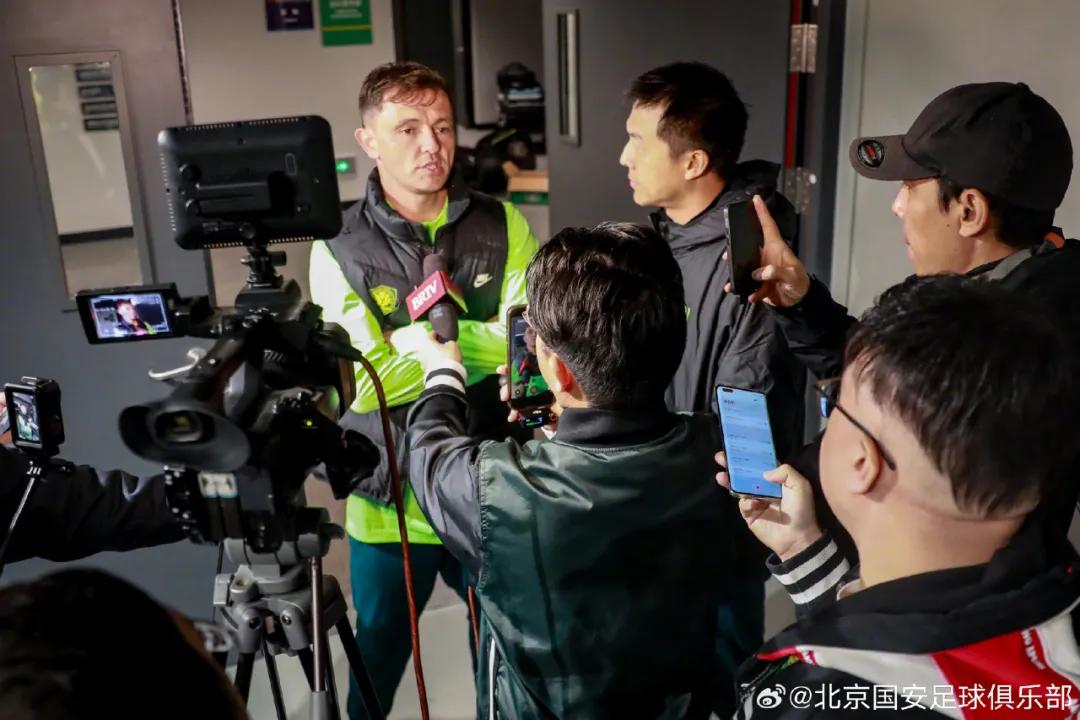
Additionally, as the first assistant coach, Ramiro had previously offered many suggestions to Setién.
On October 11th, Ramiro led his first public training session at Workers’ Stadium since taking charge. In an interview, he said that as an assistant, his daily job was to provide different opinions for the head coach’s consideration. “We constantly discuss which methods best help the team. For me, it’s also important to hear different views. That’s a good way to work. As a head coach, you can’t think your ideas are always right. When we lose, everyone must find the problems together. So, our coaching staff will keep self-criticizing and seek ways to improve.”
Ramiro divided the team into two groups for drills, both using four defenders. When asked about future formations and tactics, he admitted that whether using three or four center-backs, the goal is to unlock players’ potential. He only made minor adjustments in some details. Given the short time, he and the coaching staff cannot make major system changes, but the team will keep striving and improving in the right direction.
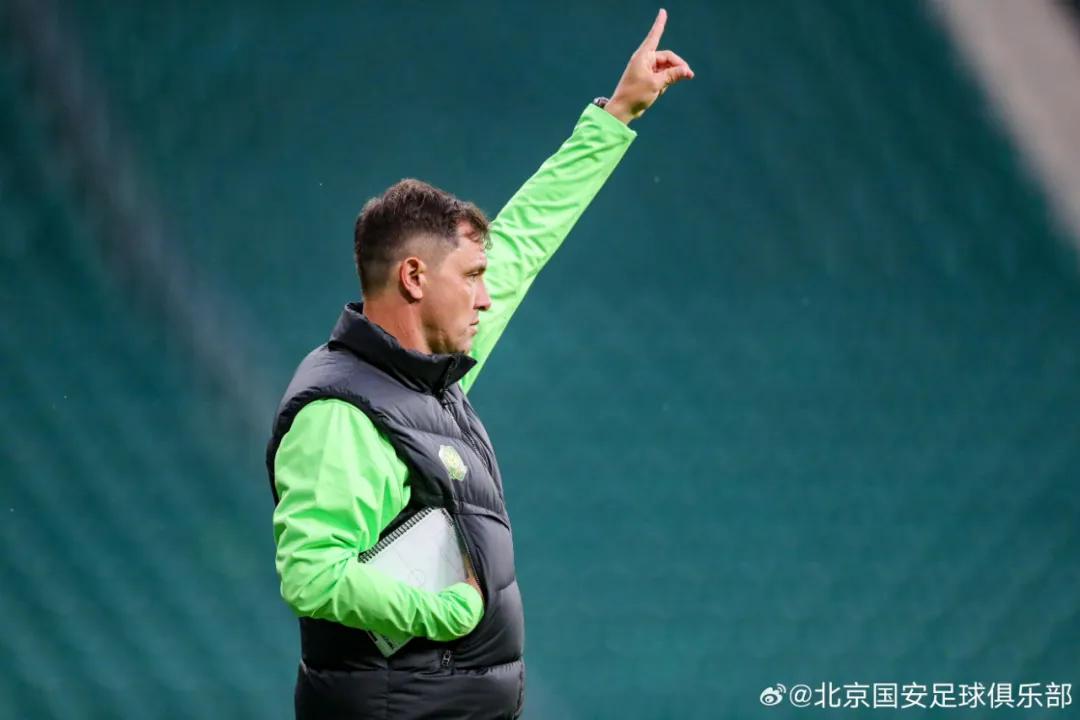
Regarding upcoming matches, Ramiro clearly stated that Guoan has the best Chinese players and hopes to maximize their potential. For every game ahead, “we must take them seriously and fight to win.”
Guoan’s next league opponents are not strong but all are battling relegation. The AFC group stage and FA Cup cannot be taken lightly, so each match under Ramiro is precarious. The decision to change coaches was also very difficult for Guoan. Originally, the club sought a head coach for long-term leadership, but this coaching change disrupted those plans.
However, insiders reveal the club has already started long-term preparations and planning to address this year’s issues. From team building to club development, changes will come next year. All these efforts have one goal: to keep Guoan competitive in the Chinese Super League over the long term with sustainable growth capacity.
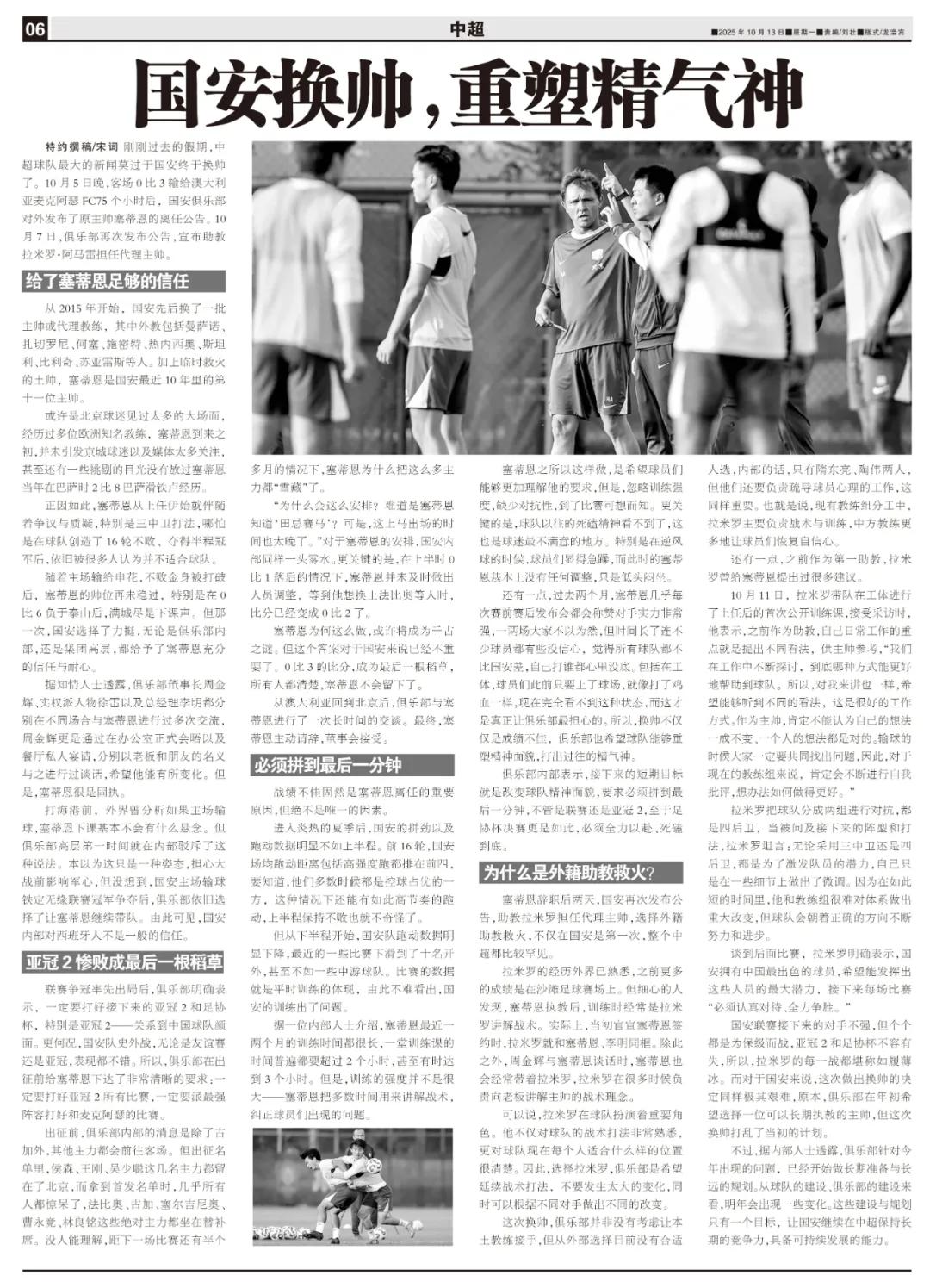


Wonderfulshortvideo
User PlaymakerHub has posted a video.








 Links
Links
 Contact
Contact
 App
App


